Can Dogs Eat Cat Food? Risks and Benefits Explained
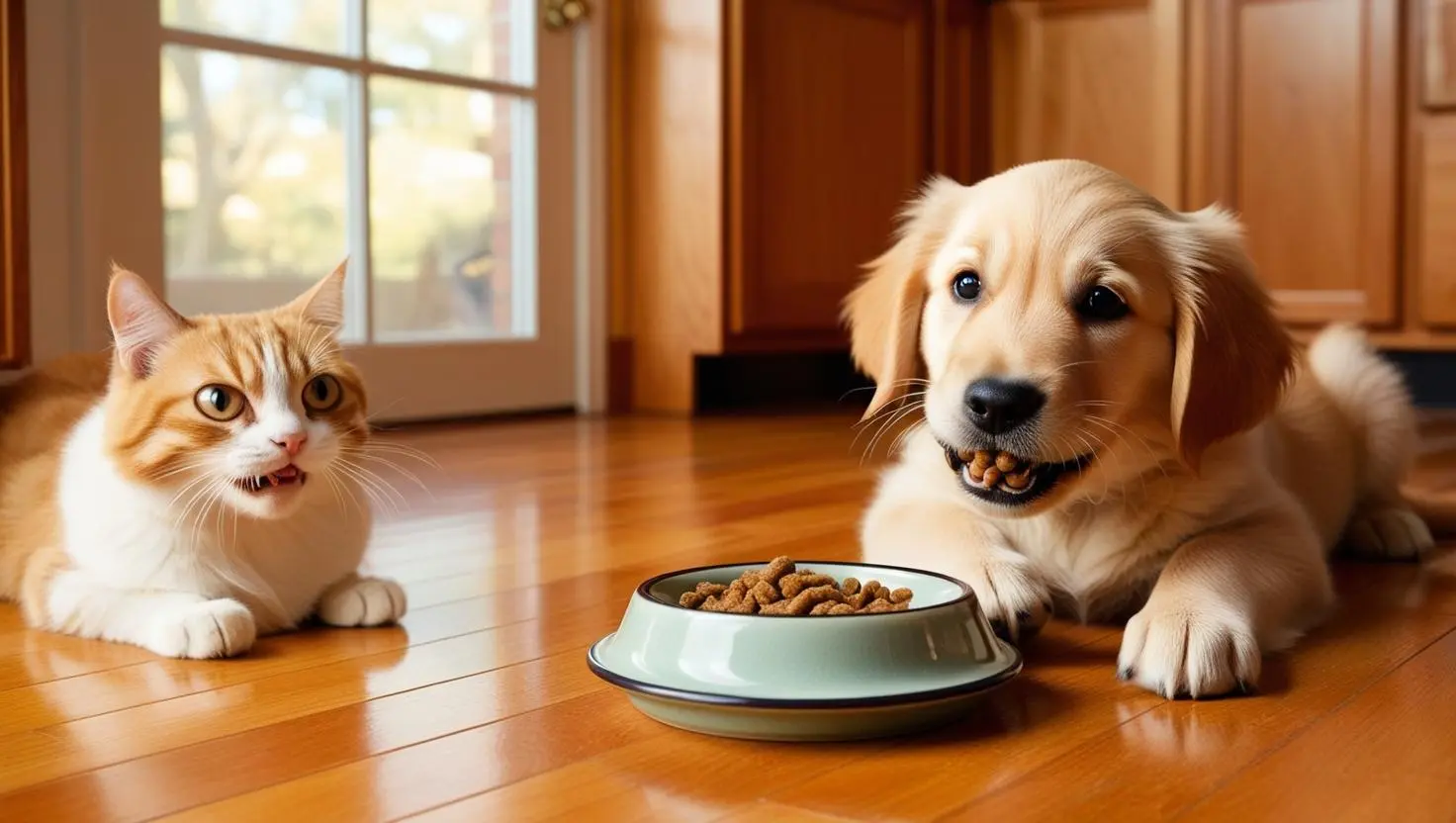
The Time My Dog Dicky Found the Cat Food
It all started one lazy Sunday morning. As I walked into the kitchen, coffee mug in hand, I noticed something unusual our cat’s food bowl was empty, and our cat, Patches, was staring at me indignantly. That’s when I heard the crunching. There, under the table, was my dog, Dicky, tail wagging furiously, munching away at the forbidden treasure: cat food.
At first, I couldn’t help but laugh at his guilty, wide-eyed expression, but then a wave of concern hit me: Can dogs eat cat food? Is this safe for Dicky?
As a responsible pet parent, I knew I needed answers. Why is cat food so irresistible to dogs? Can eating it harm their health, or is it just a tasty treat? That day kicked off my deep dive into understanding the curious connection between dogs and cat food.
If you’ve ever caught your dog sneaking bites from the cat’s bowl, you’re not alone! In this article, I’ll share everything I’ve learned when it’s okay, when it’s not, and how to handle situations like Dicky’s kitchen heist. Let’s dive into why our pups seem to love cat food so much and what you can do about it.
Why Do Dogs Love Cat Food?
If you’ve ever wondered why your dog seems obsessed with cat food, you’re not imagining things! Cat food has an almost magical pull for dogs, and it turns out, there are some good reasons why.
- Irresistible Smell and Flavor:
Cat food is made to appeal to cats, who are notoriously picky eaters. It’s packed with protein and fat, which not only satisfies a cat’s nutritional needs but also makes it incredibly aromatic and flavorful, something your dog can’t resist. To dogs, the smell alone is like a gourmet meal calling their name. - High Protein and Fat Content:
Compared to dog food, cat food is much richer in protein and fat. This extra richness is a big reason why dogs love it. Think of it like this: while dog food is their healthy everyday meal, cat food is the equivalent of a greasy slice of pizza. It’s indulgent, delicious, and hard to pass up. - The Crunch Factor:
Dry cat food, in particular, has a unique texture that some dogs find fun to munch on. It’s like swapping their usual dinner for a crunchy snack, adding to the appeal.
Dogs like Dicky don’t just eat cat food for sustenance, it’s a sensory experience for them. The taste, smell, and even the sound of the crunch is all part of what makes cat food so exciting.
The Differences Between Cat Food and Dog Food
When I started digging into the differences between cat food and dog food after Dicky’s sneaky snack incident, I realized that they’re not just interchangeable meals they’re designed with entirely different needs in mind.
Table: Comparison of Key Nutrients in Dog Food vs. Cat Food
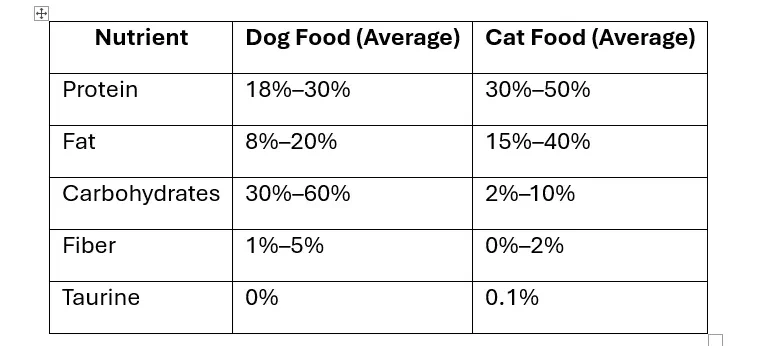
How Cats and Dogs Differ in Their Diets
- Dogs Are Omnivores:
Dogs, like Dicky, are omnivores, meaning their diets can include both plant-based and animal-based foods. Dog food typically has a balance of proteins, carbohydrates, and fats, with added fiber to support digestion. - Cats Are Obligate Carnivores:
Cats, on the other hand, are strict carnivores. They rely solely on animal-based proteins to meet their nutritional needs. Cat food is therefore loaded with protein and fat to satisfy their biology.
- Protein Levels: Cat food has much higher protein content than dog food to fuel their carnivorous instincts. While this is fine for cats, dogs don’t need such high levels of protein, and too much can strain their organs over time.
- Taurine: Cats need taurine, an essential amino acid, to stay healthy. Dog food doesn’t contain enough taurine for cats, but cat food has more than enough making it one reason why cat food smells and tastes so good to dogs.
- Fat Content: Cat food is often higher in fat, which is appealing to dogs but not ideal for their regular diet.
Why This Matters
While the occasional nibble of cat food won’t harm a healthy dog, a steady diet of it could cause health problems over time, from weight gain to digestive upset and even kidney or liver strain. Think of cat food as a rich dessert—it’s fine in small doses but not something to base an entire diet on.
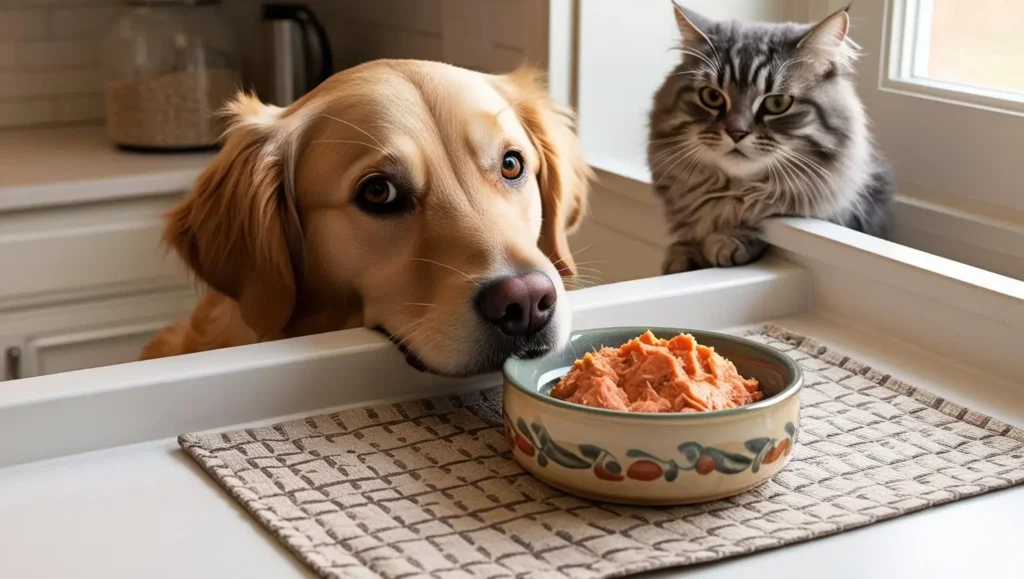
Can Dogs Eat Cat Food? (The Short Answer)
If you’re here because you caught your pup in the act, let’s answer the big question upfront:
Yes, But With Conditions
Dogs like Dicky can eat cat food occasionally, and it’s generally safe in small amounts. However, it’s not designed for them, and there are risks to be aware of if this becomes a habit.
When Is Cat Food Okay for Dogs?
- In Emergencies: If you’ve run out of dog food, cat food can be a temporary substitute in a pinch.
- For Underweight or Picky Eaters: Some dogs with specific health issues, like poor appetite or weight loss, may benefit from the higher calorie content in cat food—but only under a vet’s supervision.
- As a Treat: Cat kibble can work as an occasional training treat because it’s flavorful and compact.
When Is Cat Food Harmful?
For some dogs, eating cat food can lead to trouble:
- Digestive Upset: Too much protein or fat can cause vomiting or diarrhea, especially in dogs with sensitive stomachs.
- Obesity: The high-calorie content can quickly pack on the pounds.
- Pancreatitis or Kidney Strain: Dogs predisposed to pancreatitis or kidney issues, like Schnauzers, may suffer flare-ups from the excess fat and protein.
The bottom line? While cat food isn’t toxic to dogs, it’s not ideal for their long-term health. If your dog, like Dicky, sneaks the occasional bite, there’s no need to panic—but keep the kitty’s kibble out of reach going forward!
What Happens If a Dog Eats Cat Food Regularly?
After catching Dicky in the act, I couldn’t help but wonder: What if this becomes a habit? While the occasional nibble might not be harmful, regular consumption of cat food can cause some serious health concerns for dogs.
1. Weight Gain and Obesity
Cat food is calorie-dense, packed with proteins and fats to meet a cat’s higher energy needs. For a dog, this means extra calories they don’t necessarily need, which can quickly lead to weight gain. An overweight dog, like Dicky after too many sneaky snacks, may become more prone to joint problems, heart issues, and diabetes.
2. Digestive Upset
Because cat food is so rich, it can overwhelm a dog’s gastrointestinal system. The result? Vomiting, diarrhea, or even prolonged digestive issues if cat food becomes a regular part of their diet.
3. Risk of Pancreatitis
Some dogs, especially those prone to conditions like pancreatitis, can be seriously affected by the high fat content in cat food. Pancreatitis causes abdominal pain, vomiting, and can lead to severe complications if not treated.
4. Long-Term Strain on Kidneys or Liver
Dogs eating cat food consistently may develop kidney or liver problems over time due to the high levels of protein and fat. These organs are not designed to process such concentrated nutrition.
What Can You Do?
- Keep cat food out of reach.
- Train your dog to avoid the cat’s food bowl.
- Consult your vet if your dog eats cat food regularly or shows signs of discomfort.
How to Prevent Dogs from Eating Cat Food
Dicky isn’t the first (or last) dog to be mesmerized by the aroma of cat food, but I quickly learned a few tricks to keep him away from Patches’ bowl.
1. Feed Pets in Separate Areas
The simplest solution is to feed your dog and cat in different rooms or at different times. For example, Dicky eats in the kitchen, while Patches now enjoys her meals on a counter out of his reach.
2. Use a Pet Gate or Baby Gate
Installing a gate with a small cat-sized opening can help keep your dog out while allowing your cat to access their food freely.
3. Elevated Feeding Stations
Place your cat’s food on an elevated surface that your dog can’t reach. Cats are natural climbers, so this won’t bother them, but it’ll deter a curious pup.
4. Supervise Mealtimes
Keep an eye on your pets during feeding time to ensure no sneaky swaps are happening. This is especially useful for dogs who are extra determined, like Dicky.
5. Use a Cat Feeder with a Microchip Sensor
For high-tech pet parents, a cat feeder with a microchip sensor can be a game-changer. It only opens for your cat, based on their microchip, and stays locked when your dog tries to access it.
By taking these steps, you can ensure both pets enjoy their meals without interference.
FAQs About Dogs and Cat Food
When I first searched, I found a ton of questions from fellow pet parents. Here are the most common ones I came across:
1. What Can Happen If a Dog Eats Cat Food?
Occasional eating? Not much. Regular eating? Digestive upset, weight gain, and long-term organ strain.
2. Can I Feed Cat Food to My Dog?
Yes, but only in emergencies or under veterinary supervision. It’s not suitable as a permanent diet.
3. Why Do Dogs Love Cat Food?
The high protein and fat content, along with the irresistible aroma, make cat food like a delicacy for dogs.
4. Is Dry Cat Food Bad for Dogs?
It’s not toxic, but it’s not ideal. Dry cat food is too rich for dogs and can cause health issues over time.
5. Can Dogs Eat Cat Snacks?
In moderation, yes. Cat treats are typically small and safe as occasional snacks, but they shouldn’t replace dog-specific treats or food.
Can Dogs Eat Cat Food in an Emergency?
Sometimes life throws unexpected situations at us—like running out of dog food. If you’re in a pinch, you might wonder: Can I feed my dog cat food temporarily?
The answer is yes, but with caution. Here’s what to keep in mind:
1. It’s Fine as a Short-Term Solution
If you’ve run out of dog food and all you have is cat food, it’s okay to feed your dog cat food for a day or two. Cat food is richer in protein and fat, so it will keep your dog satiated. However, this shouldn’t become a long-term solution.
2. Watch for Digestive Upset
Some dogs may experience stomach upset, especially if they’re not used to the richness of cat food. Look out for symptoms like vomiting or diarrhea and provide plenty of water to help with digestion.
3. Use Dry Cat Food Cautiously
If you’re using dry cat food, keep portion sizes small. Cat kibble is more calorie-dense, so even a small amount can meet your dog’s short-term energy needs.
4. Get Dog Food ASAP
While cat food can work in an emergency, it’s not nutritionally balanced for dogs. Stock up on your dog’s regular food as soon as possible to prevent any potential health issues.
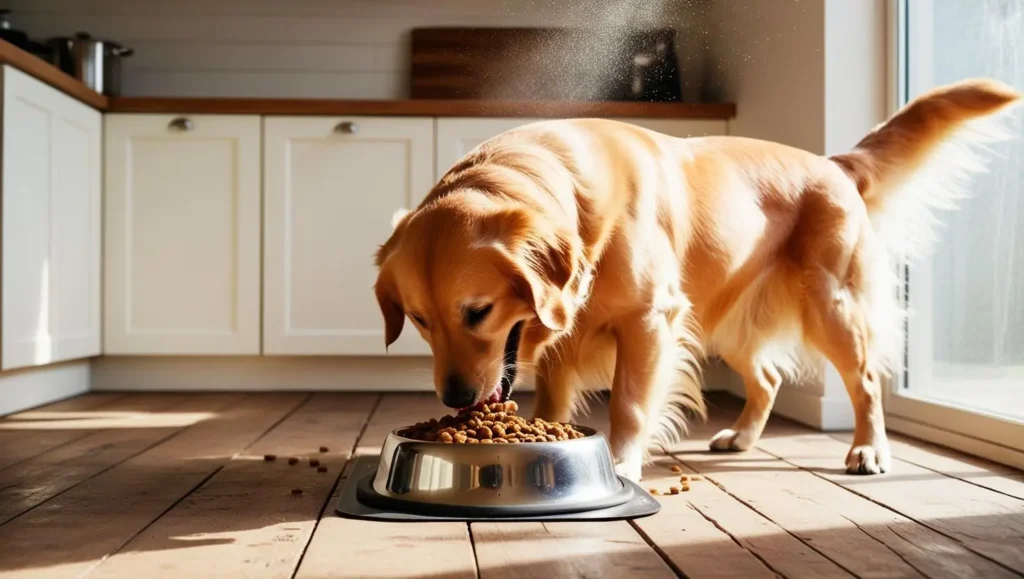
Can Dogs Eat Cat Food Every Day? (Long-Term Implications)
While an occasional treat or emergency meal won’t harm a healthy dog, feeding cat food regularly is a different story. Dogs and cats have vastly different dietary needs, and consistently feeding your dog cat food can lead to:
- Nutritional Imbalances: Dog food contains the right balance of protein, carbs, and fiber. Cat food’s higher protein and fat content can cause deficiencies in essential nutrients that dogs need.
- Organ Stress: High protein levels can strain a dog’s kidneys and liver, especially in older dogs.
- Weight Issues: The calorie-dense nature of cat food can lead to rapid weight gain, increasing the risk of obesity-related diseases.
If you find your dog sneaking into the cat’s food regularly, make sure to implement prevention strategies to protect their health.
When to Contact Your Vet About Diet Issues
If you’re noticing that your dog is constantly sneaking into the cat’s food or if you’re concerned about their diet, don’t hesitate to reach out to your vet. Here are a few signs it might be time for a professional consultation:
1. Digestive Issues
If your dog experiences recurring vomiting, diarrhea, or changes in stool after eating cat food, it could be a sign that their digestive system is reacting negatively to the high fat or protein content.
2. Unexplained Weight Gain or Loss
If you notice sudden changes in your dog’s weight, especially after switching to a diet that includes cat food or other non-dog-specific meals, it’s a good idea to talk to your vet.
3. Lack of Energy or Lethargy
If your dog starts acting lethargic, tired, or seems under the weather, it could be related to an imbalance in their diet. Nutritional deficiencies or excesses can cause fatigue or behavioral changes.
4. Persistent Hunger or Overeating
Dogs who are fed food that isn’t nutritionally balanced might become hungrier than usual or may eat excessively. If you notice these behaviors, it’s worth a vet visit.
Remember, your vet is your best resource for maintaining a healthy diet and lifestyle for your furry friend.
Conclusion: Dicky’s Lesson (and Yours!)
After Dicky’s little adventure with the cat food, I realized just how important it is to understand the needs of both our dogs and cats. While it’s perfectly normal for dogs to be tempted by cat food, as pet parents, it’s our job to ensure they’re eating what’s best for their health.
Here’s the takeaway:
- Cat food isn’t toxic to dogs, but it’s not ideal for long-term consumption.
- If your dog sneaks a bite, don’t panic but make it a habit to keep cat food out of reach.
- Always consult your vet if you’re unsure about your dog’s diet or if they have underlying health issues.
So the next time Dicky eyes the cat’s food bowl, I know exactly what to do and now, so do you!
Quick Recap (For Skimmers!)
- Can dogs eat cat food? Occasionally, yes.
- Why do dogs love cat food? The aroma, protein, and fat make it irresistible.
- Is cat food bad for dogs? Long-term, yes—it can lead to weight gain, digestive issues, and organ strain.
- What should you do? Keep the cat’s food out of reach, and only use it in emergencies.
Veterinary Advice: AVMA or Royal Veterinary College
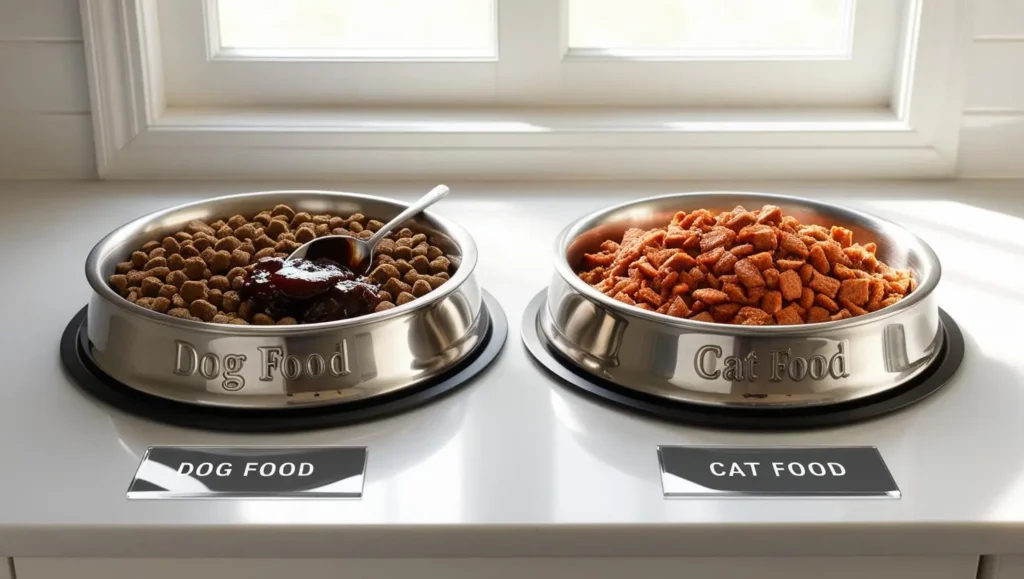
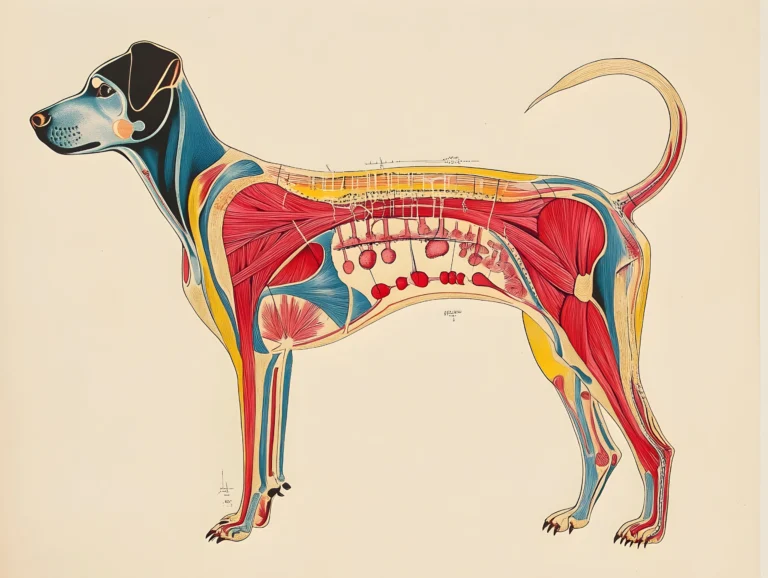
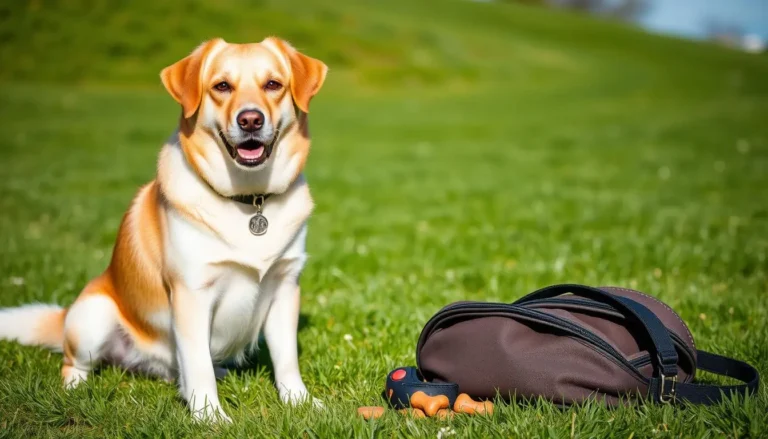
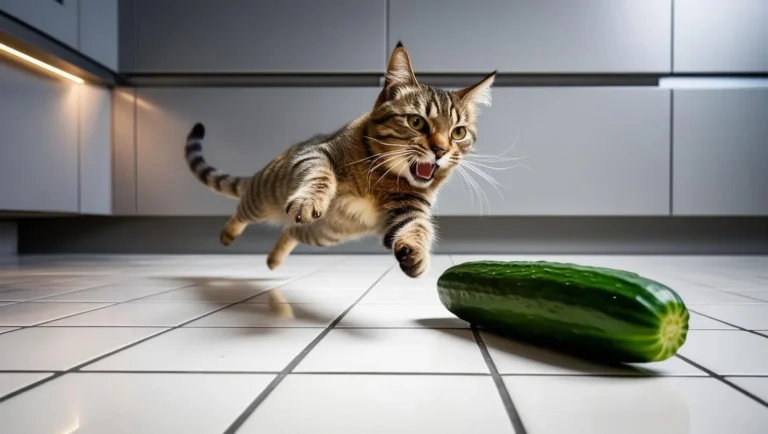
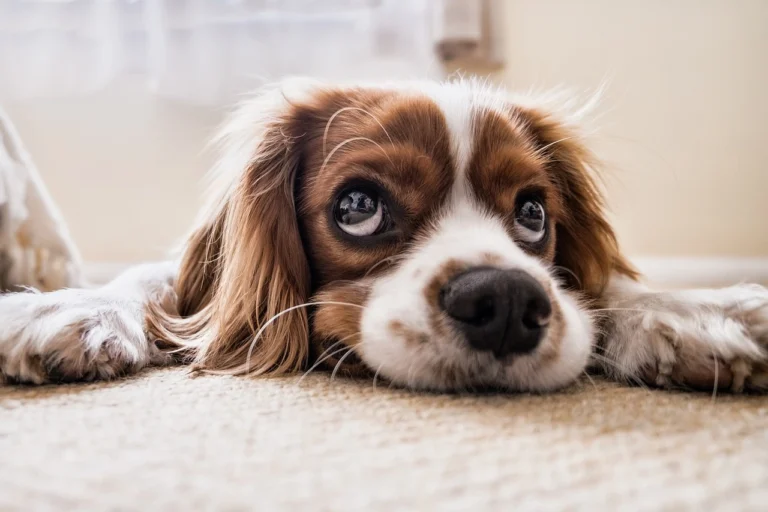
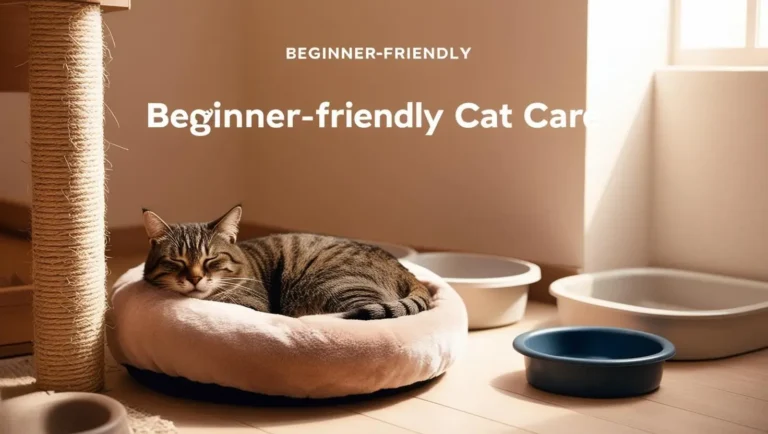
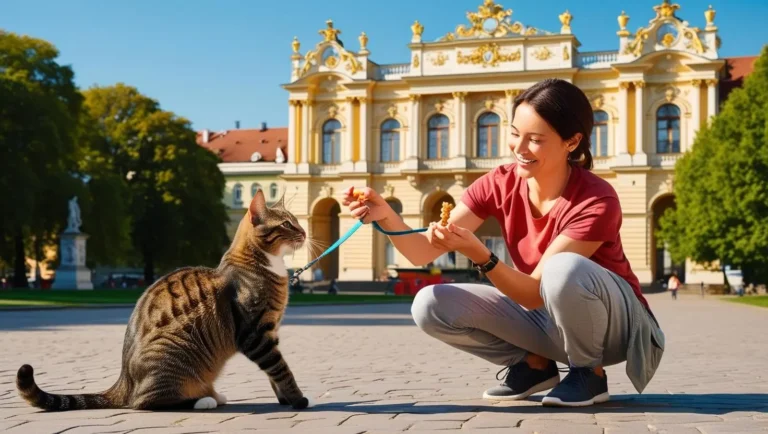
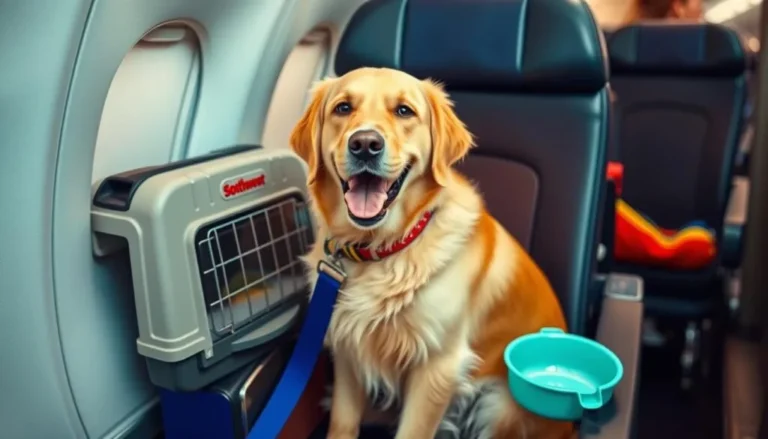
What a gem I’ve discovered! The thoroughness of your research combined with your engaging writing style makes this post exceptional. You’ve earned a new regular reader!